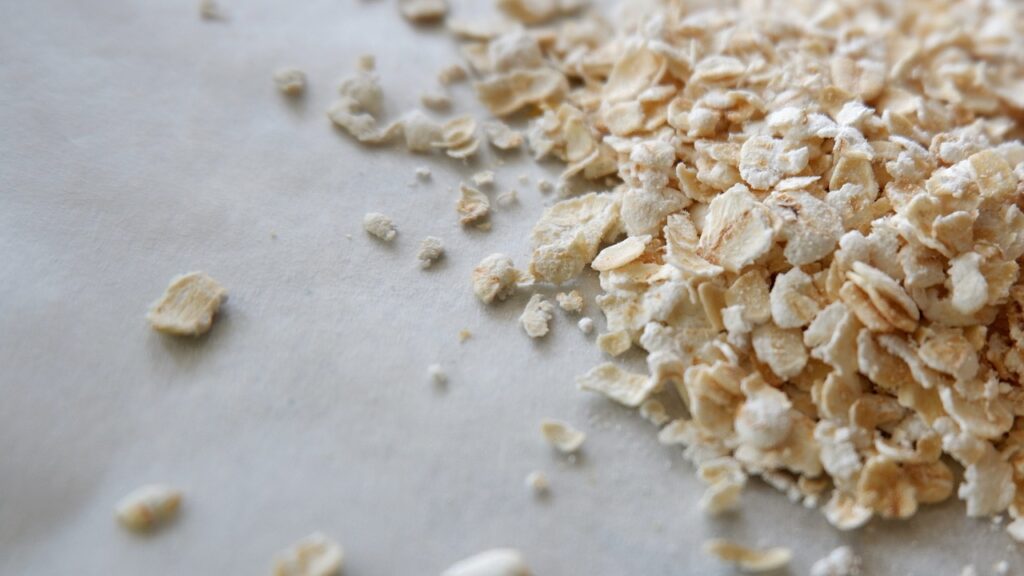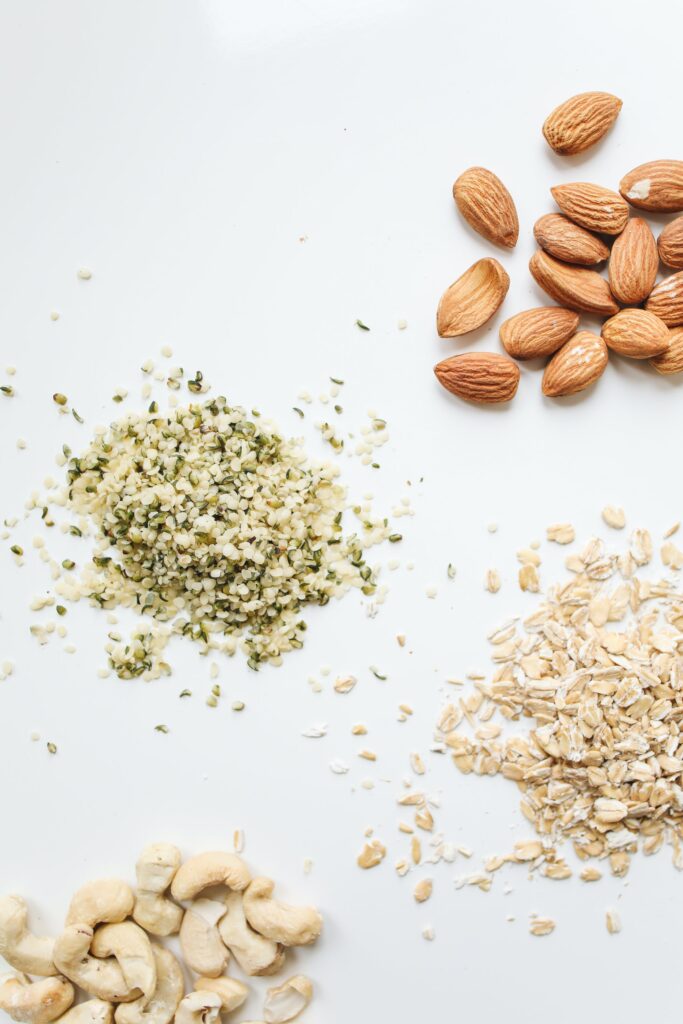Is Oatmeal Alkaline? The Basics Of Alkaline And Acidic Diets
Understanding Acid And Alkaline Balance In The Body
The pH level of the body, which ranges from 0 to 14, measures how acidic or alkaline the body is. An optimal pH level for the body is slightly above 7.0, which is considered to be neutral. When the body is too acidic, it can become more prone to diseases and health issues.
The body naturally stays in a slightly alkaline state, but factors such as diet and lifestyle can affect this balance. Consuming an alkaline diet can help maintain this balance.
How Diet Can Affect The Body’s Ph Levels
Diet is a key factor that affects the body’s pH levels. Foods that are high in acid, such as meat, dairy, and processed foods, can create an acidic environment in the body. On the other hand, foods that are alkaline, such as fruits, vegetables, and grains, can help maintain a more alkaline state.
Oatmeal is a popular breakfast food choice for those looking to maintain a healthy lifestyle. While oatmeal is generally considered to be a healthy food option, it is slightly acidic with a pH level of around 5.5.
To optimize oatmeal’s benefits and offset its acidity, it is recommended to make it with alkaline water or to pair it with alkaline foods. Alkaline water has a pH level of 8 or higher and can help balance the acidity in oatmeal while also providing additional health benefits.
In conclusion, understanding the basics of acid and alkaline diets and how they can affect the body’s pH levels is important for overall health and wellness. Making simple changes to your diet, such as consuming more alkaline foods or pairing acidic foods with alkaline options, can help maintain a healthy pH balance in the body and promote optimal health.
The Alkaline Diet And Its Claims
What Is The Alkaline Diet And How Does It Work?
The alkaline diet, also known as the acid-alkaline or alkaline ash diet, is based on the concept that certain foods can alter the pH level of the body. According to this theory, consuming acidic foods such as meat, dairy, and processed foods can create an acidic environment in the body, which can lead to various diseases and health issues. On the other hand, consuming alkaline foods such as fruits, vegetables, and grains can help maintain a more alkaline state in the body, which is believed to promote overall health and wellness.
The pH level of the body ranges from 0 to 14, with 7.0 considered neutral. An optimal pH level for the body is slightly above 7.0, which is slightly alkaline. While the body naturally stays in a slightly alkaline state, diet and lifestyle factors can affect this balance. Proponents of the alkaline diet claim that consuming alkaline foods can help maintain the body’s pH balance and improve overall health.
Claims And Potential Benefits Of An Alkaline Diet
Proponents of the alkaline diet claim that it can provide various health benefits including weight loss, improved digestion, increased energy levels, and a reduced risk of chronic diseases such as cancer. However, there is limited scientific evidence to support these claims.
While it is true that certain foods can affect the body’s pH levels, there is limited research to suggest that consuming alkaline foods can significantly alter the body’s pH balance or provide significant health benefits. Additionally, the pH level of food itself does not necessarily reflect how it will affect the body’s pH level.
In conclusion, while the alkaline diet may have some potential benefits, more research is needed to fully understand its impact on the body and overall health. Incorporating more alkaline foods into your diet can be a healthy choice, but it is important to also consume a balanced diet that includes a variety of nutrient-dense foods for optimal health.
Myths Surrounding Alkaline Diets
The Myth Of Alkalizing Certain Foods, Like Oatmeal
The myth that certain foods, such as oatmeal, need to be alkalized before consuming in order to achieve optimal health is not supported by scientific evidence. While oatmeal is considered an acidic food, it does not significantly affect the body’s pH level. The body has natural mechanisms to maintain its pH balance, and consuming a balanced diet that includes a variety of nutrient-dense foods can support this balance.


Debunking Other Myths Surrounding Alkaline Diets
Other myths surrounding the alkaline diet include claims that it can cure serious diseases such as cancer, improve bone density, and boost energy levels. However, there is limited scientific evidence to support these claims. Additionally, some versions of the alkaline diet may restrict important food groups like dairy and grains, which can lead to nutrient deficiencies if not properly balanced.
While incorporating more alkaline foods into one’s diet can be a healthy choice, it is important to approach the alkaline diet with caution and not rely solely on this eating plan for overall health and well-being. Consuming a balanced diet that includes a variety of nutrient-dense foods, as well as engaging in regular physical activity and maintaining a healthy lifestyle, are key factors in achieving optimal health. More research is needed to fully understand the impact of the alkaline diet on the body and overall health.
Myths Surrounding Alkaline Diets
Oatmeal’s Nutritional Value
When it comes to oatmeal, it is often debated whether or not it needs to be alkalized in order to achieve optimal health. However, the truth is that oatmeal is a nutrient-dense food that provides numerous benefits regardless of its pH level. Oatmeal is a great source of complex carbohydrates, fiber, and protein, as well as various vitamins and minerals such as thiamin, magnesium, and phosphorus. Additionally, it has been shown to improve heart health by reducing cholesterol levels and decreasing the risk of heart disease.
How Oatmeal Fits Into A Balanced Diet
While oatmeal itself may be considered acidic, it is important to remember that the body has natural mechanisms to maintain its pH balance. This means that consuming a balanced diet that includes a variety of nutrient-dense foods, like oatmeal, can support the body’s pH balance. Oatmeal can be a healthy addition to any diet as it provides sustained energy throughout the day, is low in calories, and can be customized with toppings like fresh fruit, nuts, and spices.
Debunking Other Myths Surrounding Alkaline Diets
It is important to approach the alkaline diet with caution as there are numerous myths surrounding its effectiveness. Claims that the alkaline diet can cure serious diseases like cancer and improve bone density are not backed by sufficient scientific evidence. Additionally, some versions of the alkaline diet may restrict important food groups like dairy and grains, leading to potential nutrient deficiencies if not properly balanced.
While incorporating more alkaline foods into one’s diet can be a healthy choice, it is important to remember that a balanced diet is the key to overall health and well-being. Regular physical activity and healthy lifestyle habits are also crucial in achieving optimal health. Further research is needed to fully understand the impact of the alkaline diet on the body and overall health.
Oatmeal’s Acidic Properties
The Ph Levels Of Oatmeal And How They Affect The Body
Oatmeal is often considered an acidic food, with a pH level of around 5-6. While some may argue that an alkaline diet is the key to optimal health, it’s important to understand the role of pH levels in the body. The pH of a food can affect how it is digested and absorbed in the body, but the body itself has natural mechanisms for maintaining its pH balance. Consuming a variety of nutrient-dense foods, including acidic ones like oatmeal, can actually support the body’s pH balance.
The Role Of Acidity In Digestion And Overall Health
The acidity of oatmeal, and other foods, can play an important role in digestion. The stomach has a highly acidic environment, with a pH of around 2-3, which is necessary for breaking down and absorbing nutrients. Consuming acidic foods like oatmeal can actually help stimulate the production of gastric acid and aid in digestion.
While the alkaline diet may have some benefits, it’s important to approach it with caution. Claims that an alkaline diet can cure serious diseases or improve bone density are not backed by sufficient scientific evidence. Additionally, some versions of the alkaline diet may restrict important food groups like dairy and grains, leading to potential nutrient deficiencies if not properly balanced.
Incorporating oatmeal into a balanced diet can provide numerous health benefits, regardless of its pH level. Oatmeal is a nutrient-dense food that provides a good source of complex carbohydrates, fiber, and protein, as well as various vitamins and minerals. It has been shown to improve heart health, promote satiety, and provide sustained energy throughout the day. It can also be customized with toppings like fresh fruit, nuts, and spices for added variety and flavor.
Remember that a balanced diet, regular physical activity, and healthy lifestyle habits are the keys to achieving optimal health. While the impact of an alkaline diet on the body is still being studied, it’s important to focus on eating a variety of nutrient-dense foods, including both acidic and alkaline options like oatmeal, to support overall health and well-being.
The Impact Of Oatmeal On The Body’s Ph Level
Studies On Oatmeal And Its Impact On The Body’s Ph Levels
Oatmeal is often considered an acidic food with a pH level of around 5-6. However, consuming acidic foods like oatmeal can actually support the body’s pH balance. While some may argue that an alkaline diet is the key to optimal health, it’s important to understand the role of pH levels in the body.
Research has shown that consuming a diet that includes acidic foods, such as oatmeal, can have a positive effect on the body’s pH levels. In fact, a study published in the Journal of Environmental and Public Health found that a diet high in acid-forming foods like oatmeal was not associated with a lower pH level in the body. This suggests that the body has natural mechanisms for maintaining its pH balance, even when consuming acidic foods like oatmeal.
Factors That Can Influence Ph Balance In The Body
It’s important to note that the body’s pH balance can be influenced by a variety of factors. For example, stress, lack of sleep, and certain medications can all impact the body’s pH level. Consuming a balanced diet that includes nutrient-dense foods like oatmeal can help support the body’s natural pH balance and overall health.
While some may argue that an alkaline diet is the key to optimal health, it’s important to approach it with caution. Claims that an alkaline diet can cure serious diseases or improve bone density are not backed by sufficient scientific evidence. Additionally, some versions of the alkaline diet may restrict important food groups like dairy and grains, leading to potential nutrient deficiencies if not properly balanced.
Incorporating oatmeal into a balanced diet can provide numerous health benefits, regardless of its pH level. Oatmeal is a nutrient-dense food that provides a good source of complex carbohydrates, fiber, and protein, as well as various vitamins and minerals. It has been shown to improve heart health, promote satiety, and provide sustained energy throughout the day. It can also be customized with toppings like fresh fruit, nuts, and spices for added variety and flavor.


Remember, a balanced diet, regular physical activity, and healthy lifestyle habits are the keys to achieving optimal health. While the impact of an alkaline diet on the body is still being studied, it’s important to focus on eating a variety of nutrient-dense foods, including both acidic and alkaline options like oatmeal, to support overall health and well-being.
Incorporating Oatmeal Into An Alkaline Diet
How Oatmeal Can Be A Part Of A Balanced Alkaline Diet
Oatmeal is a versatile and healthy breakfast option that can be easily incorporated into an alkaline diet. While oatmeal is often considered an acidic food with a pH level of around 5-6, it can still be a part of a balanced alkaline diet. It is important to understand that balancing both alkaline and acidic foods in the diet can help keep the body functioning properly and support overall health and well-being.
Consuming oatmeal alone will not significantly raise the body’s pH level, but it can be made more alkaline by adding in other alkaline foods like fruits, vegetables, and nuts. These foods can be added as toppings and fillers to make the oatmeal a more balanced meal. Additionally, making oatmeal with alkaline water can also help balance its acidity.
It is important to note that while an alkaline diet can provide potential health benefits, it should not be followed too rigidly. A strict alkaline diet can lead to nutrient deficiencies if important food groups like dairy and grains are restricted. It is essential to approach the diet with balance and moderation.
Tips For Incorporating Other Alkaline Foods Into Your Diet
In addition to oatmeal, there are many other alkaline foods that can be incorporated into the diet. These include:
- Leafy greens like spinach, kale, and Swiss chard
- Citrus fruits like lemons, limes, and grapefruits
- Cruciferous vegetables like broccoli, cauliflower, and Brussels sprouts
- Nuts and seeds like almonds, walnuts, pistachios, and pumpkin seeds
- Herbs and spices like basil, parsley, ginger, and turmeric
These foods can be added to meals or eaten as snacks throughout the day to help balance the body’s pH level. By consuming a variety of nutrient-dense foods, including both acidic and alkaline options, the body can function optimally and support overall health and wellness.
Balancing Health And Diet Myths
The Importance Of Considering Individual Health Needs And Balanced Nutrition
When it comes to health and nutrition, there are countless myths and conflicting information out there. One common misconception is that all acidic foods should be avoided in favor of alkaline foods. While it is important to maintain a balanced pH level in the body, it is also crucial to consider individual health needs and incorporate a variety of nutrient-dense foods into the diet.
Oatmeal, for example, is often considered an acidic food with a pH level between 5 and 6. However, it is also rich in fiber and packed with vitamins and minerals, making it a healthy breakfast option when consumed in moderation. By adding alkaline foods like fruits, vegetables, and nuts to oatmeal, it can be made more balanced and nutritious.


It is important to approach diet and nutrition with balance and moderation, rather than adhering too rigidly to any one myth or trend. Restricting important food groups like dairy and grains in the pursuit of an alkaline diet can lead to nutrient deficiencies, and ignoring individual health needs can be detrimental to overall well-being.
Tips For Navigating Health And Diet Myths In The Media
With so much conflicting information out there, it can be difficult to know what to believe when it comes to health and diet. One important tip is to do your research and consult with a healthcare professional before making any drastic changes to your diet or lifestyle.
Another helpful strategy is to evaluate the credibility of sources and be wary of sensationalized claims or quick-fix solutions. Health and nutrition are complex and multifaceted, and there is no one-size-fits-all solution or magic cure.
Incorporating a variety of nutrient-dense foods, including both acidic and alkaline options, into a balanced diet can support overall health and well-being. By staying informed and approaching diet and nutrition with balance and moderation, individuals can navigate through the sea of health and diet myths and make informed choices that best suit their individual needs.
Balancing Health And Dietary Myths With The Nutritional Benefits Of Oatmeal
Introduction
When it comes to health and nutrition, there are many myths and conflicting information out there. One myth is that all acidic foods should be avoided in favor of alkaline ones. However, it is also crucial to consider individual health needs and incorporate a variety of nutrient-dense foods into the diet. Oatmeal, often considered an acidic food, is rich in fiber and packed with vitamins and minerals, making it a healthy breakfast option when consumed in moderation.
The Role Of Balanced Nutrition In Supporting Overall Health And Wellness.
It is important to approach diet and nutrition with balance and moderation, rather than adhering too rigidly to any one myth or trend. Restricting important food groups like dairy and grains in the pursuit of an alkaline diet can lead to nutrient deficiencies and ignoring individual health needs can be detrimental to overall well-being.
By adding alkaline foods like fruits, vegetables, and nuts to oatmeal, it can be made more balanced and nutritious. Incorporating a variety of nutrient-dense foods, including both acidic and alkaline options, into a balanced diet can support overall health and well-being.
Conclusion: Oatmeal As A Nutritious And Versatile Food
In conclusion, balancing both alkaline and acidic foods in your diet can keep your body functioning properly and help you feel your best. While oatmeal itself is not alkaline, it has a plethora of vitamins and minerals that can help the body when consumed in moderation. By approaching diet and nutrition with balance and moderation and incorporating a variety of nutrient-dense foods into the diet, individuals can navigate through the sea of health and dietary myths and make informed choices that best suit their individual needs.
Is Oatmeal Alkaline: Balancing Health and Diet Myths
Q: Is Oatmeal considered an alkaline food?
A: Oatmeal is not considered an alkaline food. Despite its high nutritional content, oatmeal does contain acid-forming properties.
Q: Can consuming oatmeal cause an imbalance in the body’s pH levels?
A: The human body has a natural buffering system that can maintain healthy pH levels even after consuming acid-forming foods like oatmeal.
Q: Is an alkaline diet beneficial for overall health?
A: While an alkaline diet encourages the consumption of whole, unprocessed foods that can prevent disease, it is not necessary for maintaining overall health.
Q: Can an alkaline diet cause nutritional deficiencies?
A: A well-planned alkaline diet can provide the necessary nutrients for a healthy lifestyle. However, it is important to ensure that all essential nutrients are included in the diet.
Q: Is consuming oatmeal regularly a healthy choice?
A: Oatmeal is a nutritious food that can be a part of a healthy diet when consumed in moderation along with a variety of other whole foods.
https://www.youtube.com/watch?v=tjbcI5JZWVU



Are you looking for delicious and healthy dessert ideas? Look no further than scrumptioussugarfree.com! The owner and writer of this blog is dedicated to creating mouth-watering desserts without any added sugars. From chocolate cake to fruity sorbets, every recipe is carefully crafted to satisfy your sweet tooth while keeping your health in mind. Follow scrumptioussugarfree.com on social media for daily inspiration, and join the community of health-conscious dessert lovers today!
